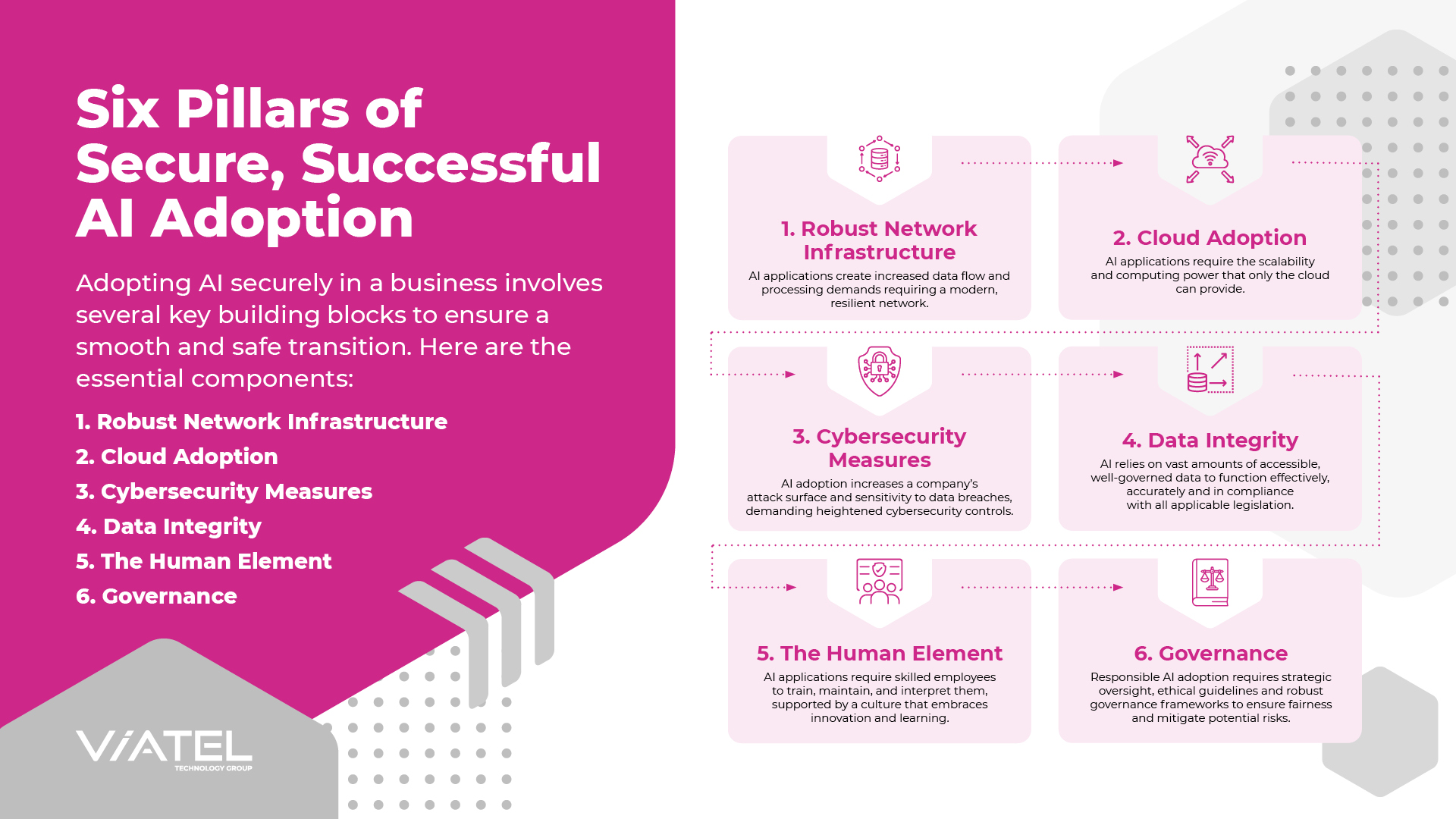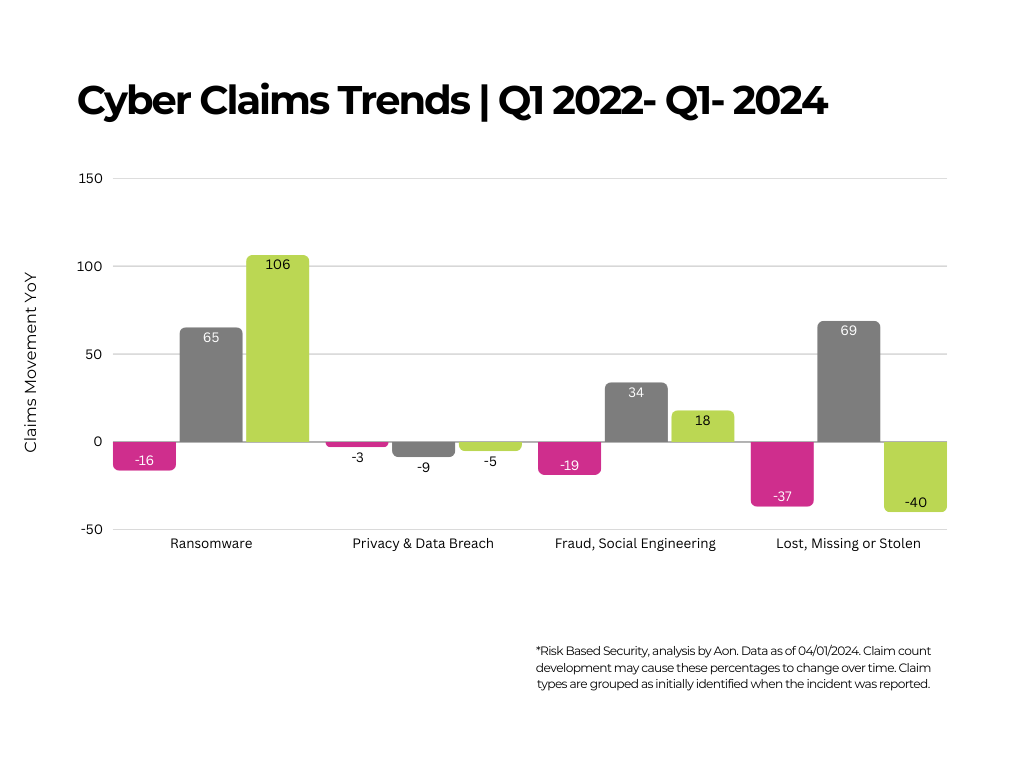Business Tech Trends for 2025
As business leaders, we are constantly looking at how best to optimise our operational resilience and make decisions that positively impact our infrastructure. From AI to cybersecurity, it can be a challenge to keep up with the fast-tracked evolution of our mission-critical technology. We know that business requirements differ and a one-size-fits-all approach when it comes to emerging trends simply won’t work. Below, we’ve highlighted the key business tech trends shaping the next twelve months and beyond for business. Let’s look at how you can leverage them to gain a competitive advantage in 2025.
Eilish O’Connor
Chief Technology Officer (CTO)
Viatel Technology Group
The Network as a Foundation
While investment in new technologies is a welcomed and inevitable aspect of business growth, there is one critical component that must be considered before deciding on ‘how best to invest’. A robust network is the foundation of all well-laid digital initiatives and core to the success of introducing new technology to your business. When we look at the year ahead and the exponential use of AI, demands for cloud-based networks continue to grow. AI applications create increased data flow and processing demands meaning that a modern, resilient network is paramount. Here at Viatel, we believe that a strong cloud-based network is the backbone of any business. From superfast, reliable connectivity and bandwidth that can grow with you to cutting-edge SD-WAN tech, our network and connectivity solutions are made to measure, and expertly secured to drive innovation right across your business.
The Path to AI
At Viatel, we believe in “cutting through the hype” and providing our customers with solutions that meet their business needs. All new tech is vulnerable to the hype cycle and in 2024, we saw AI hit the peak of inflated expectations (Gartner). Implementing the correct strategic steps to AI is essential to avoid plunging into the next phase of the hype cycle. Adopting AI successfully requires a multi-faceted approach. At Viatel, we look at our six pillars of secure and successful AI Adoption. These include:
- Robust Network Infrastructure
AI applications create increased data flow and processing demands, requiring a modern, resilient network. - Cloud Adoption
AI applications require the scalability and computing power that only the cloud can provide. - Cybersecurity Measures
AI adoption increases a company’s attack surface and sensitivity to data breaches, demanding heightened cybersecurity controls. - Data Integrity
AI relies on vast amounts of accessible, well-governed data to function effectively, accurately and in compliance with all applicable legislation. - The Human Element
AI applications require skilled employees to train, maintain, and interpret them, supported by a culture that embraces innovation and learning. - Governance
Responsible AI adoption requires strategic oversight, ethical guidelines, and robust governance frameworks to ensure fairness and mitigate potential risks. Addressing these requirements and ensuring that your organisation is AI-ready is critical to AI adoption in all businesses.
Cyber Resilience
The cyber threat landscape is rapidly evolving, presenting significant challenges for businesses of all sizes. Ransomware attacks are escalating at an alarming rate, with Aon reporting a staggering 106.4% increase in claims observed in Q1 2024 compared to the previous year. This trend underscores the critical need for robust cyber resilience strategies. The constant emergence of new threats, coupled with the persistent risk of human error, organisations must prioritise the development and implementation of robust security measures. These include advanced threat detection and response capabilities, employee training programs to mitigate human error and regular security assessments to identify and address vulnerabilities. By investing in cyber resilience, businesses can not only minimise the impact of cyberattacks but also protect their critical assets, maintain operational continuity, and safeguard their reputation in an increasingly interconnected world.
Increased Regulations
As we move into 2025, regulatory changes such as DORA and the NIS2 Directive are driving a significant shift in how industries approach cybersecurity. While compliance with NIS2 can be costly and demanding, it brings several important benefits for CTOs and businesses, such as expanded protections for critical sectors and a heightened focus on the national security of both citizens and businesses. One of the most significant changes has seen boards and CEOs become directly accountable for cybersecurity, which has shifted the conversation from IT leaders advocating for resources to the board actively questioning measures being made to secure the organisation. NIS2 also places a strong emphasis on fostering a cyber-aware culture, with senior leadership setting the example. The establishment of trusted networks such as COREs (Cybersecurity Operational Response Ecosystems) and Cyber Security Incident Response Teams (CSIRTs) signals a more collaborative approach to tackling cyber threats. While challenges remain, including tight reporting requirements and delays in implementation, NIS2’s risk management framework—aligned with NIST and ISO standards—provides a clear path forward for businesses already committed to best practices. However, it’s important to recognise that compliance isn’t just about meeting regulatory requirements. It’s also about making continued IT investments to keep pace with evolving regulations. The digital landscape is increasingly complex, and businesses must prioritise effective IT and cybersecurity investments to stay ahead of the curve. Organisations must assume that cyber incidents are inevitable and implement robust incident handling and response measures to ensure resilience in the face of emerging threats.
Data Governance and Integrity: The Real Value of AI is in the Data
Data is the lifeblood of AI, and the need for it to be managed and governed appropriately has never been more pertinent. Establishing clear data governance policies is essential to ensure the availability, usability, integrity, and security of data. These policies should clearly define data ownership, access protocols, and usage guidelines. Investing in data quality tools is critical to identify and correct errors, ensuring the accuracy and reliability of data used for AI training and operations. Businesses must also proactively monitor their data for potential biases that could lead to unfair or inaccurate outcomes, taking steps to mitigate these biases to ensure ethical and equitable AI implementations.
See Where 2025 Will Take Your Business
Viatel Technology Group transforms, empowers and protects thousands of organisations with award-winning, fully managed business technology. Our key solutions include cybersecurity, cloud, networks and connectivity, Microsoft Solutions, IT Services and Voice and UC. If you would like to work with a trusted partner to support your mission-critical technology stack, speak to a member of our team today by emailing hello@viatel.com.









